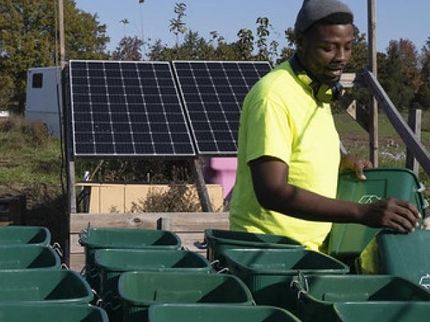New Study: Global Food Systems Can Cause World to Exceed Temperature Targets
Business as usual could add 1°C of warming; Existing solutions can cut this by more than half
A new study by climate scientists sheds light on the significant role food systems will play in future global warming and what can be done about it. The research, published in the journal Nature Climate Change, finds that food production, distribution and consumption could still add around 1°C to planetary warming by 2100 — and, in turn, risk exceeding the internationally agreed-upon temperature targets for a climate-secure future.

Couleur / Pixabay
Notably, the paper suggests solutions. The study, which is based on extensive global datasets, models and data from more than a hundred studies, shows that more than half of this warming (55%) could be avoided by changes in agricultural production practices, decarbonization of the energy used to produce food, health-driven shifts in consumer food choices and reductions of food waste.
"This research highlights the urgent need for action to reduce emissions from food systems," said lead author Catherine Ivanovich, Ph.D. candidate at Columbia University. "By understanding which food items and greenhouse gases contribute most to future warming, we can address these emissions with targeted strategies which both reduce future climate change and promote food security.”
The authors used a novel analytical approach to better understand how food production, consumption and waste will drive climate change, illuminate the relative impact of different foods and greenhouse gases, and guide efforts to reduce the climate impact of global food systems.
Of the warming expected by the end of the century from business-as-usual food systems, methane emissions, mostly from livestock burps and manure, rice paddies and decomposing food waste, account for nearly 60%. Carbon dioxide, such as that generated from fuel used for farm equipment and food transportation, and nitrous oxide, from excess synthetic fertilizer and ruminant manure on rangelands, are each responsible for about 20%.
The study quantified the mitigation potential of four solutions. In the push to cut expected food system-related warming by more than half this century:
- Improving agricultural production provides 25% of the mitigation potential: Improvements to production practices and adoption of technologies that decrease enteric and manure methane emissions and nitrous oxide emissions would provide 25% of the reductions possible by the end of the century. These changes could come from scaling innovative solutions to reduce enteric methane emissions and the widespread use of manure management best practices. The result could be decreasing emissions from ruminant meat, dairy and non-ruminant meat by 35%, 30% and 10%, respectively, by 2100.
- Decarbonizing the energy sector provides 17% of the mitigation potential because of the energy used to produce, process and transport food: Decarbonizing the energy sector by 2050, in line with international net zero goals, would decrease expected warming from global food systems 17% by 2100.
- Shifting diets based on health recommendations provides 21% of the mitigation potential: If health-focused recommendations were adopted globally, the world could avoid 21% of predicted food system-driven warming. However, the researchers note that because dietary choices are extremely complex, often determined by cultural traditions and food access, it is difficult to assess how much of this mitigation potential is realistic or ethical to achieve.
- Reducing consumer food waste provides 5% of the mitigation potential: Cutting consumer-level food waste in half by 2100 would provide approximately 5% additional reduction in anticipated warming. However, due to data limitations, the study could not assess food waste incurred during production and transportation, which could be another significant opportunity for mitigation.
“The findings of our study offer a set of solutions to policymakers, industry and the public,” said Ilissa Ocko, co-author and Senior Climate Scientist at EDF. “We can provide food for a growing population, support the farmers, pastoralists and rural communities around the world and still make critical advances toward a more sustainable, equitable food system. It is time to recognize the sustainability gains that have long been underway and pivot toward empowering greater adoption of these practices. Solutions will look different around the world, but we should work together with the shared goal of stabilizing the climate and ensuring people and nature thrive on a changing planet."
Current food system emissions trends raise concerns about our ability to sustain a growing population and pursue a secure climate future. Fortunately, compelling mitigation options are available. The authors hope their findings will inform policy and business decisions that support efforts to lower food system emissions and build resilience to the climate risks that can’t be avoided.





























































